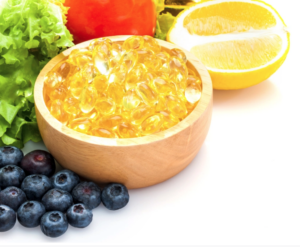
Cancer rates are rising in the young, Researchers have identified a focal point for the forces they suspect of driving up cancer cases in young people: the gut. They are searching people’s bodies and childhood histories for culprits.
Brianna Abbott, writing in The Wall Street Journal, tells us rates of gastrointestinal cancers among people under 50 are increasing across the globe. In the U.S., colorectal cancer is the leading cause of cancer death in men under 50 and second for women behind breast cancer. Each generation born since the 1950s has had higher risk than the one before.
“Everything you can think of that has been introduced in our society since really the 1960s, the post-World War II era, is a potential culprit,” said Dr. Marios Giannakis, a gastrointestinal oncologist at the Dana-Farber Cancer Institute in Boston.

Robert F. Kennedy Jr., President-elect Donald Trump’s pick for Health and Human Services secretary, has pointed to ultra-processed foods and chemicals in medicines and the environment. Cancer doctors share some of his suspicions about diet and exposure to contaminants such as microplastics, shards that make their way from packaging or clothing into our bodies through water and food. They are scrutinizing those and other potential hazards including “forever chemicals” and even light.
“We’re all concerned and want to do something quickly and act quickly, but we want to do so based on sound science,” said Dr. Andrew Chan, director of epidemiology at Mass General Cancer Center in Boston.
His team has found connections between early-onset colorectal cancer risk and obesity, consuming a lot of sugar-sweetened beverages and physical inactivity. But those studies don’t prove a direct cause. Chan’s team is expanding its work to incorporate studies that track more people and analyze blood, tumor and stool samples. They will scour the results for potential carcinogens, then expose mice to them and see if cancers develop. They plan to first focus on obesity and alcohol, said Yin Cao, a cancer epidemiologist from Washington University School of Medicine in St. Louis, who co-leads the work with Chan.
Excessive alcohol use is linked with risk for early colorectal cancer, studies show, along with diets high in fat and added sugars. One study found people who ate more ultra-processed foods had a greater risk of precursors to colon cancer.
The group plans to test ways to lower risks, including whether prescribing weight-loss drugs including Ozempic can help prevent colorectal cancer. Another trial will assign some participants a healthier diet and study whether changes in the bacteria and pathogens in the gut, called the microbiome, affect their risk.
“There’s an interplay most likely between the things we eat, the bacteria in the gut, and what those bacteria produce,” said Dr. Jordan Kharofa, a gastrointestinal-cancer specialist at the University of Cincinnati Cancer Center, who isn’t involved in the study.
Kharofa and other researchers have uncovered links to diets high in sulfur, which results from consuming lots of liquor and processed meat and few fruits and vegetables. Gut bacteria can turn that sulfur into hydrogen sulfide, which could inflame the colon and raise cancer risk.
But some patients don’t fit that description at all. “They are very, very health conscious, and then they come into your clinic and they’re 33 and they’ve got stage-four colon cancer,” said Dr. Marwan Fakih, a gastrointestinal oncologist at City of Hope in Duarte, Calif. “There’s no question we’re missing something.”
Some researchers are looking at antibiotics, which disrupt the microbiome. One California team analyzed medical records and failed to find a solid link to broad-spectrum antibiotics, but the early results suggest long-term use could increase risk.
“We don’t have all the answers yet,” said Jane Figueiredo, a professor of medicine at Cedars-Sinai Medical Center in Los Angeles. “There might not be a magic bullet.”
All of this makes us realize there is much we still don’t know about the causes of cancer and therefore much we need to learn. Perhaps it makes sense to take another look at our diets and the processed foods that we consume, as Kennedy suggests.

